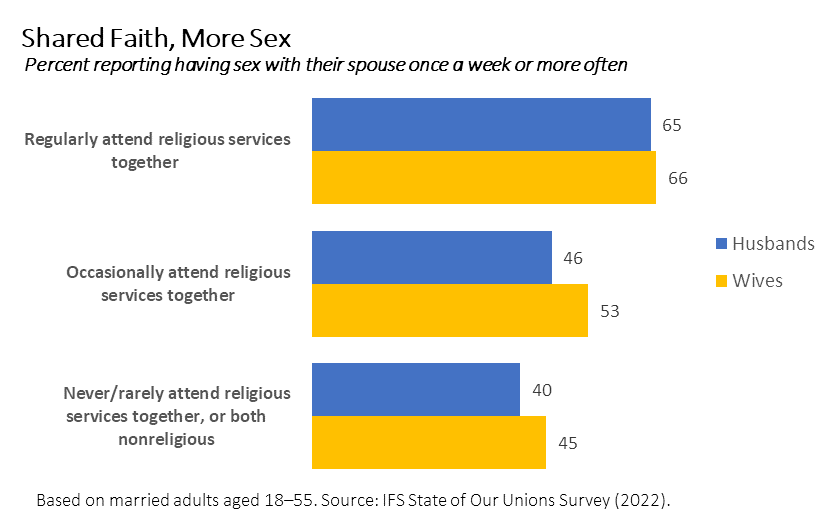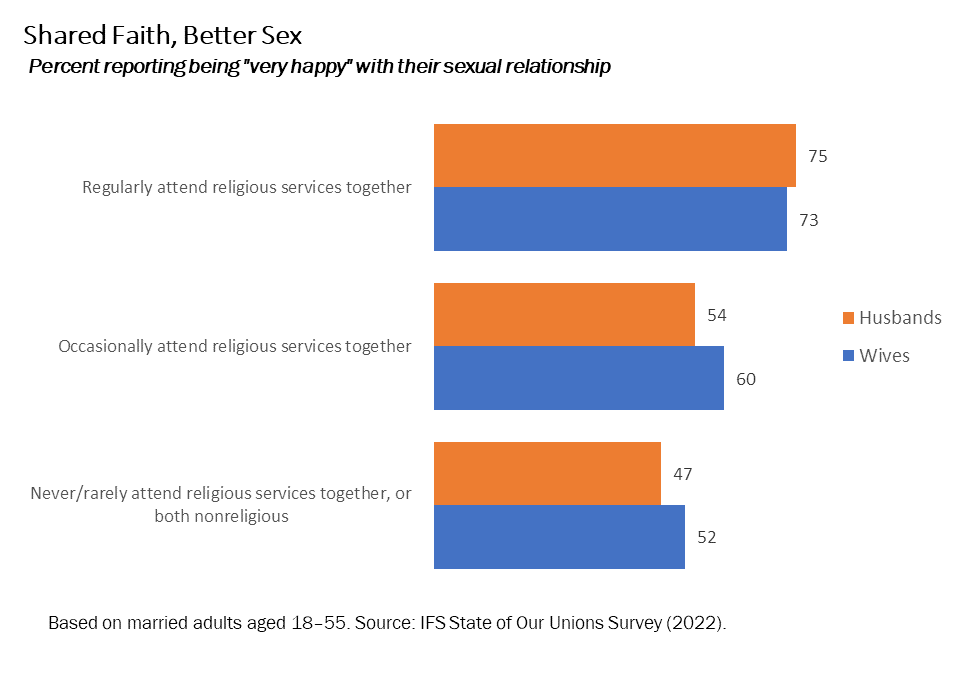A Sociologist of Religion on Protestants, Porn, and the ‘Purity Industrial Complex’”—so read the title of a recent New Yorker interview in which Isaac Chotiner asked sociologist Samuel Perry about the nexus between religion, pornography, and marriage among evangelical Protestants. You can probably guess how the Christian faith came off in this mainstream media outlet. Not well.
The New Yorker interview left the reader with the distinct impression that all because of an archaic Christian sexual ethic that forbids pornography, Christian men and communities are rife with “depression,” “unhappiness,” and disrupted marriages.
The New Yorker mocked the books, small groups, and software companies designed to help evangelical men avoid porn—what Perry calls the “purity industrial complex.” Perry claimed that Christian men are suffering from “cognitive dissonance” between their belief that sex is sacred—and meant to be shared only with your wife—and their desire to engage in behavior that contradicts this belief, like viewing pornography. By his telling, Christian men bear a particularly heavy burden from this heightened sense of shame about porn. As Perry—the author of Addicted to Lust: Pornography in the Lives of Conservative Protestants—puts it, Christian men using porn are afflicted by “guilt and shame that make you feel crappy about yourself,” and evangelical Protestant women “draw a hard line” against their husbands’ porn use because they view it as “literally adultery, or a betrayal, or a perversion.” This makes Christian wives “twice as likely to divorce their husband because of his pornography use.” By contrast, this New Yorker article suggested, secular men are much less likely to suffer any guilt or relationship problems from using porn.
This article—and many like it in the mainstream media—gives the public the impression that faith plays a toxic role in the lives of ordinary families. But this portrait is deceptive.
The truth is that faith generally appears to be a force for good when it comes to the quality and stability of married life, men’s and women’s satisfaction with their lives, and the welfare of children. The research tells us that American men and women who regularly attend church are significantly happier in their marriages, less likely to end up divorced, and more satisfied with their lives. For instance, the data tell us that regular churchgoers are between about 30 percent and 50 percent less likely to get divorced, compared to Americans who are unchurched. So much for the New Yorker’s insinuation that faith is a destabilizing force in marriage today.
But what about one of the most important and contested domains of our culture: Is greater religious faith linked to better or worse sex?
Plenty of voices in our culture would suggest that answer is “worse.” For instance, in Addicted to Lust, Perry introduces us to two thirty-something Georgia men, one of whom is a Christian and one of whom is not, who both turn to porn on a weekly basis.
Perry depicts David as tortured, deflated, and deeply unhappy because of his regular use. This white, married family man feels “like a failure” and a “horrible hypocrite.” His inability to be honest with his wife about his viewing habit has “stolen intimacy” away from his marriage, and he “feels beaten down because of his inability to fully eradicate pornography from his life.”
By contrast, Nick doesn’t “think there’s anything wrong morally” with viewing pornography. He consumes material that he “considers pretty vanilla, standard fare” and comes across as comfortable with his regular use, as well as with his romantic relationship of six years. While he acknowledges that there can be “side effects” from consuming porn, including his propensity to fantasize “about other women besides my partner,” he does not appear to be particularly affected by his use. Even though he acknowledges some downsides, Nick by no means comes across as crippled by his porn use, unlike his fellow Peach Stater David.
In this ivory tower tale, you know which man is the “Christian” before you’re even told: David. In fact, academic and media treatments of religion and relationships, like this one, often insinuate that conservative Christian norms about sex have a toxic effect on ordinary people’s lives and relationships.
Religious hang-ups about sex, we’re led to believe, leave all too many men and their marriages crippled. Nick, we are informed, “feels that religion has a counteractive effect; it bottles up sexual desires and then causes frustrated people to act out sexually” by, among other things, viewing porn. And, according to Perry, the “recurrent moral incongruence” of regular porn use, “along with the attendant cover-up and deceit,” leads to negative “consequences for conservative Protestants’ mental health and even their faith.” Our cultural gatekeepers think faith keeps men and women from enjoying the fruits of a half century of sexual liberation.
But for all the Davids out there, there are many more men like Martin (name changed for privacy). Martin, a black Christian husband and father who lives in the suburbs of Washington, D.C., does not use pornography, in large part because his faith helps him steer clear of it. Even when he’s on the internet, checking out his favorite news and music sites, he’s careful. “I mean it’s one of those things where, you know the Bible’s very clear about fleeing temptation,” he told us, adding, “So, yeah . . . certain sites I won’t go on.” Moreover, Martin treads gingerly on his favored hip-hop sites and Instagram, being careful to “keep scrolling” past videos of “scantily clad women” that pop up on a regular basis.
The care with which Martin navigates the internet is emblematic of how religious husbands typically approach virtual temptations. Religious married men are markedly less likely to use pornography than their secular peers, according to the 2022 State of Our Unions Survey. Only 35 percent of religious husbands have viewed pornography in the last month, compared to 62 percent of married men who rarely or never attend religious services. Another analysis of the General Social Survey found that a clear majority of churchgoing Protestant men did not use pornography in the last year; by contrast, a majority of men who were not regular churchgoers did use porn.

Religious men’s comparative care regarding sex extends beyond the virtual world to the real world. Martin reports that his “faith walk” has led him to avoid situations that “could land me in a compromising situation.” After he got married, for instance, Martin and his wife Kimberly (name changed for privacy) “talked about guardrails” for navigating relationships with members of the opposite sex. This included steering clear of maintaining relationships with old flames or going “out at night drinking with somebody” besides your spouse, Kimberly told me.
Martin and Kimberly’s faith has also been a positive force in guiding their sexual relationship. They have prayed together about their sexual relationship, and their faith fuels discussions about their mutual “needs, whether it comes to sex or emotions or whatever,” according to her. When it comes to sex, she adds, “We have ongoing conversations about, ‘Okay, so how often?’ or ‘How not often?’ or . . . ‘Are you fulfilled, like where [are you]?’” in terms of the physical side of the relationship.

Sex is an especially sensitive issue for Kimberly, who was sexually abused earlier in her life. Her background initially made sexual intimacy with Martin difficult for her. Her faith helped her work through the emotional wounds she bore from her abuse and gave her the strength to solve the sexual issue “we were having, especially in the very beginning of our marriage.”
Kimberly and Martin are not alone. Because sexual problems—from infidelity to pornography to misaligned sexual interest—are a major cause of divorce and marital strife, the ways in which faith directly reinforces fidelity, open communication, and generosity can be important in setting the emotional and social stage for a strong and secure physical relationship. For instance, wives in religious marriages are more likely to report that it is “mostly” or “definitely” true that their husbands are considerate when they do not wish to have sex, compared to couples who do not share a common faith; likewise, husbands in religious marriages are more likely to report that their wives are responsive to them when they initiate sex, compared to men in marriages marked by no faith.
This may help explain why churchgoing couples report more sex than non-religious couples. Specifically, about two-thirds of husbands and wives who attend religious services together have sex at least once a week, compared to less than half who do not regularly attend together or at all.
Couples who attend religious services together also report the greatest sexual satisfaction. About three-quarters of these husbands and wives are very happy with their sexual relationship; by contrast, those who do not regularly attend together or at all are markedly less likely to be happy. To be sure, David’s story shows us that there is no religious magic pill that makes for good sex. But too many academic, media, and pop culture depictions—think, for instance, of Saturday Night Live’s hilarious sendups of “The Church Lady” back in the 1980s and 1990s—of the relationship between religion and sex obscure this important sociological truth: for most husbands and wives, more faith equals better sex.
The next time you run across an article or video in the mainstream media dissing faith and family, remember this: For most men and women, endowing sex, not to mention marriage itself, with a sense of sacredness leads not to depression and divorce court but to strong and satisfying unions—outside and inside the bedroom.
Brad Wilcox, professor of sociology and director of the National Marriage Project at the University of Virginia.
Wendy Wang is director of research for the Institute for Family Studies.